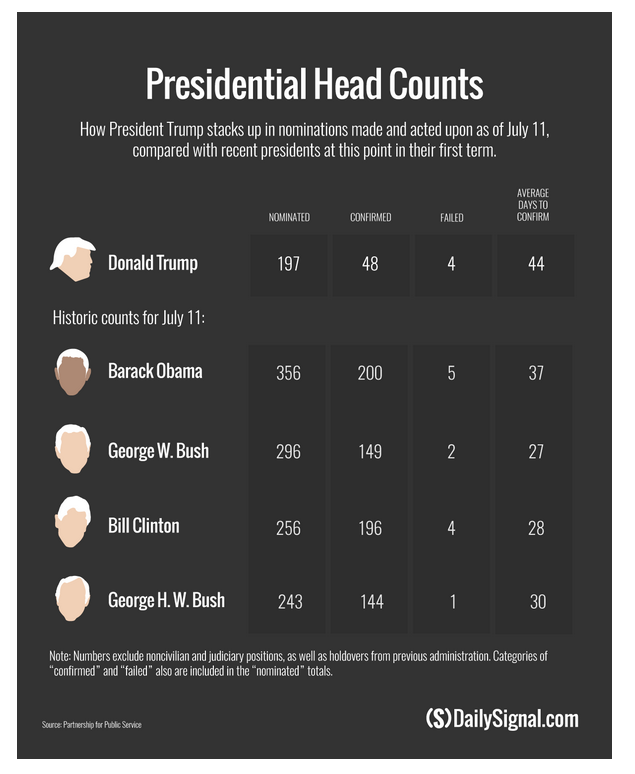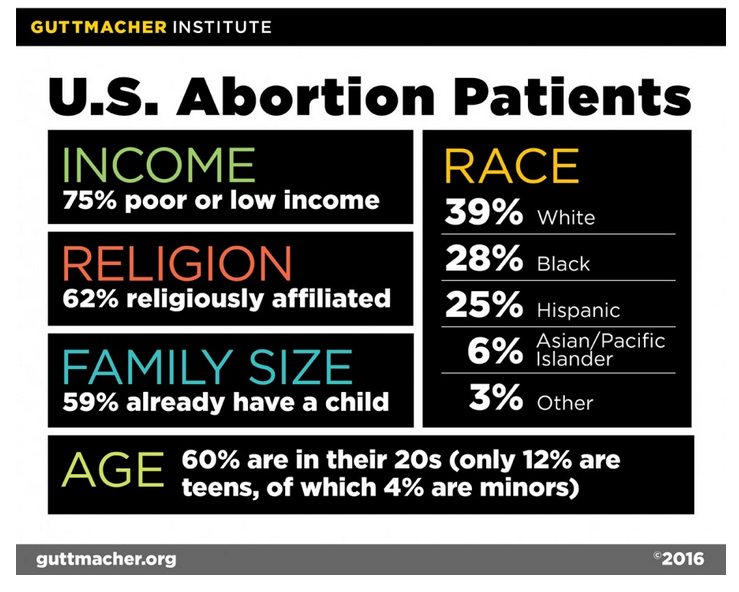It is amazing to me that anything ever gets done in Washington. The Democrats in the Senate, led by Senator Schumer, have done everything they can to block the appointments and agenda of President Trump. Yesterday The Daily Signal posted an article on that subject that included the following chart:
Senate Majority Leader Mitch McConnell said Tuesday that after completing work on a health care bill to replace Obamacare, the Senate will turn to a defense spending bill and “the backlog of critical nominations that have been mindlessly stalled by Democrats.”
“In order to provide more time to complete action on important legislative items and process nominees that have been stalled by a lack of cooperation from our friends across the aisle, the Senate will delay the start of the August recess until the third week of August,” McConnell, R-Ky., said.
During a press briefing Tuesday, White House deputy press secretary Sarah Huckabee Sanders noted McConnell’s announcement and accused Senate Democrats of “looking to set a record for pointless and dangerous obstruction.”
Citing the Obama administration, Sanders added:
While more than 90 percent of the previous administration’s nominations were confirmed by a voice vote, Democrats in the Senate have allowed only approximately 10 percent of President Trump’s nominees to be voted on in that way.
We’re coming up on the August recess of President Trump’s first term, by which point the Senate [had] confirmed 69 percent of President Obama’s nominations; less than a month out from that same point, the Senate has confirmed only approximately 23 percent of President Trump’s nominees. These numbers show the Democrats’ true colors.
I am not a big fan of Senate Majority Leader Mitch McConnell, but he is right about this. Even a blind squirrel occasionally finds a nut.




